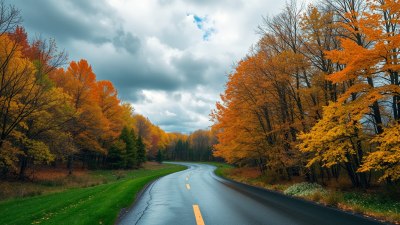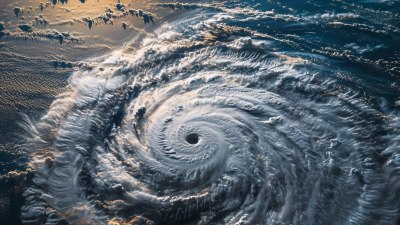Why Your Dream Destination Always Feels Hotter Than Expected
Explore why your dream destination often feels hotter than anticipated.

Image by luis-molinero on Freepik
Traveling to a dream destination is often filled with excitement and high expectations, especially when it comes to the weather. We plan our outfits, pack sunscreen, and look forward to lounging under the sun. However, many travelers find that their ideal vacation spot frequently feels hotter than they had anticipated. This phenomenon can be attributed to several factors that influence our perception of temperature, the local climate, and our preparations for the trip.
The Influence of Climate Zones
Different regions around the world experience varying types of climates, which can greatly affect how hot it feels. Tropical climates, for example, can deliver high humidity alongside temperature highs, making the air feel heavier and the heat more intense. In contrast, a desert climate might have soaring daytime temperatures but cooler nights. When planning a trip, if you're heading to a tropical destination, be prepared for both the heat and the moisture in the air.
Humidity vs. Temperature
The combination of temperature and humidity is a crucial aspect of how heat is perceived. The heat index, which combines these two factors, can make it feel significantly warmer than the actual temperature reading. For instance, a temperature of 90°F (32°C) with a humidity level of 70% can feel like it is over 100°F (38°C). This discrepancy often catches travelers off guard, especially those from drier climates. Make sure to research not just the expected temperature but also the humidity levels when packing for your trip.
Acclimatization and Heat Adaptation
Our bodies have a remarkable ability to acclimatize to different temperatures, but this process takes time. When you arrive in a hot, humid destination after coming from a cooler climate, your body may struggle initially. It can take several days for your body to adapt to the new warmth, which can make the heat feel overwhelming during your first few days of vacation. Gradually exposing yourself to the heat can ease this transition. Take it slow and hydrate often to help your body adjust more comfortably.
Sun Exposure and Latitudes
Sun exposure plays a significant role in temperature perception. Traveling closer to the equator, where sunlight is more direct and intense, can lead to unsuspecting heat stress due to increased UV rays. The Earth's tilt allows certain destinations to receive more direct sunlight throughout the year. Areas in lower latitudes experience longer days of sunlight and fewer clouds, which can add to the heat experienced by travelers. Always factor in those geographical differences when planning your itinerary.
Personal Expectations and Psychological Factors
Your mental state can also influence how hot you feel. If you're mentally prepared for a tropical paradise, your excitement might heighten your sensitivity to the heat. Sometimes, people associate vacations with a 'hot and sunny' ideal, leading to a perception that it’s hotter than it actually is. The anticipation of enjoying the sun can create expectations that might not align with reality. Mindfulness during your trip can help temper these perceptions, allowing you to enjoy your surroundings without being overwhelmed by the heat.
Dressing for Comfort
What you wear can have a significant impact on how hot you feel. Lightweight, breathable fabrics are essential in hot climates. However, many travelers tend to pack for fashion rather than practicality, which can exacerbate feelings of heat. Materials like cotton and linen can help wick moisture away from the skin, while darker colors tend to absorb more heat. Always prioritize comfort over appearance when choosing your vacation wardrobe, and consider wearing a wide-brimmed hat and sunglasses, which can also help shield you from the sun.
Staying Hydrated
Hydration is a key factor in managing heat exposure. It’s easy to underestimate your body’s need for water, especially when you’re in a different climate. Thirst may not always be a reliable indicator of dehydration, particularly in humid conditions where you might sweat more. Be proactive: drink water regularly and consider electrolyte-rich beverages to replace nutrients lost through sweat. Carrying a refillable water bottle when exploring new places ensures that you stay refreshed and energized throughout your adventures.
Activity Planning and Breaks
Planning your daily activities while considering the heat is crucial. Over-scheduling your itinerary can lead to exhaustion and make the heat feel even more intense. It’s advisable to schedule outdoor activities for the cooler parts of the day, such as early mornings or later afternoons. Take regular breaks in shaded areas or indoors where air conditioning is present. This not only helps to cool your body down but also allows you to recharge. Understanding your personal limits is also important—if you start feeling overwhelmed, taking time in an air-conditioned space can make a significant difference.
Local Weather Variations
Local weather patterns can be unpredictable. While you might check a long-term forecast before your trip, weather conditions can fluctuate unexpectedly. Sudden heatwaves or changes in local weather patterns can lead to an experience that feels far more sweltering than anticipated. It’s advisable to have some flexibility in your plans and keep an eye on local weather updates. This can help you prepare for any sudden shifts in temperature, ensuring you’re never caught off guard.
The Impact of Travel Fatigue
Traveling itself can be exhausting, and fatigue may impact how sensitive you are to heat. Long flights, jet lag, and disrupted sleep can all affect your body’s ability to self-regulate temperature. After a long journey, you might find yourself feeling the heat more acutely. It’s critical to allow your body some recovery time upon arrival. A good night’s sleep and light activities can help restore your energy levels, making it easier to cope with the warm climate.
Final Tips for Enjoying Hot Destinations
While the unexpected heat can feel like a challenge, there are numerous strategies to make your dream destination a comfortable experience. Embrace the local culture by partaking in activities suited to the climate, such as enjoying a refreshing beverage or taking a dip in the ocean or a pool. Remember that every region has its unique characteristics that contribute to its charm, including its temperature. Ultimately, staying flexible, informed, and prepared will ensure your vacation remains enjoyable, regardless of the heat. The right mindset can transform a potentially uncomfortable situation into a memorable adventure.











